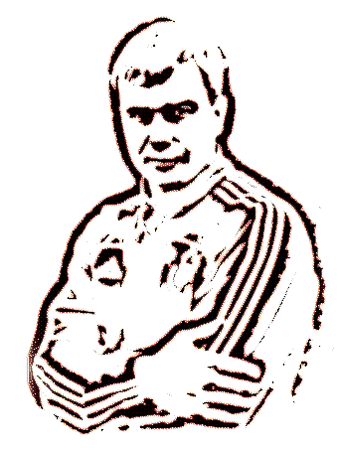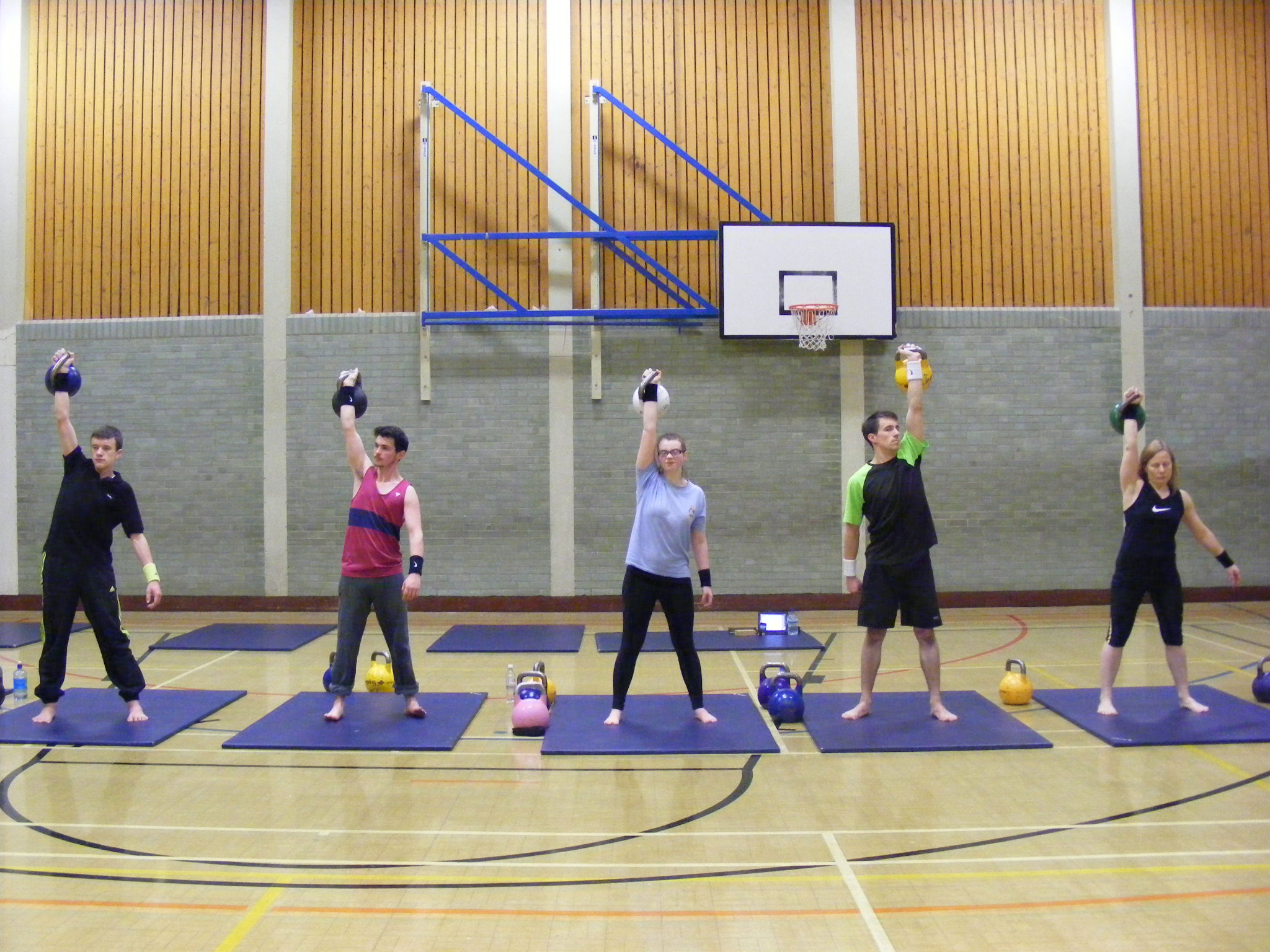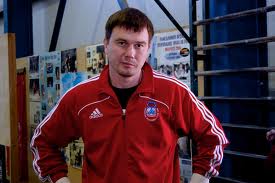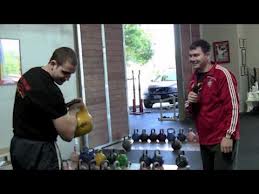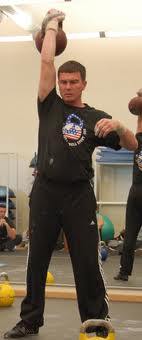This week I want to pull apart the very comfortable notion of recovery, and look at it in its rawest form, when we are still going through the mental frustrations, the physical discomfort and the long haul still ahead of us. I got talking to Coach Fedorenko and we agreed to chart our two respective recoveries over the next few months. Two very different subjects, with very different injuries and goals, but with kettlebells as the one common training tool.
1) Me
Pretty motivated, driven personality.
2009 Was mainly recovered from massive stroke, ultimately with just one side affected in gait
Then mumps in 2010 destroyed glutes and some other muscle damage, tough break but learnt to walk and swim again
Then massive breakdown in health Oct 2011, CNS damaged, back on floor, struggling to stand, even.
Worked through this, learnt to walk and swim again (3rd time in life), but sensation largely lost on both sides now, lots of sensory damage, neural connections misfiring, visual and audio perception affected
Before all this: ran half marathon, horseriding
Since stroke: ran 2 x 10ks, learnt to windsurf , box, and lift Kettlebells
ME: (far right in line up)
Weight: around 60kg
Target weight: to get back to 55kg
Height 5’3
Goal
– short term: Pentathlon comp March 2013
– long term : long cycle jerks for ranking
Am hoping to see real return to physical well being by Oct 2013, two years since I got sick, but am also hoping to be well enough by June-July this year to go for ranking.
Setbacks: brain sometimes still has bursts of panic reactions, leads to falls; also not good idea to stop thinking about overhead hold while its happening otherwise it drops!
Other barriers: body can’t cope too well with extremes in temperature, light, or noise
Pressures: blogging as I do, many people know I am entering comp. That creates its own pressure.
Also I gained body fat last year while I was sick, despite eating really clean, so the gain was probably more due to stress (cortisol production affects weight gain). Am losing it now, but as a trainer it’s been humiliating to appear less than fit.
How it’s gone last two weeks: first week was a good one, was hitting the numbers I was aiming for. Last week: jerks fell to pieces, kept falling over mid-set.
Other challenges: learning to lift in shoes (any shoes) as feet are pretty well insensate and seek out response from floor. It’s much harder to pick up any information through shoe leather.
So that’s how I come to be working through recovery (again!). I am fortunate enough to be getting help from Valery to make it happen. But the coach himself is facing his own uphill journey just now, and it’s no less of a hardship than mine. VF understands the frustrations of wanting to WORK when it’s not happening at some level. We started off by talking about my sets from last week, making decisions about how to return to a failed set. I was loath to resort to coming down in the weights or slow down as a solution, and Fedorenko understood this:
“For sure, when I work with 32kg bells 132 reps, if I only work at 14-15 rpm it feels bad, but at 16-18 rpm it feels fine, and at 12rpm it just doesn’t feel like work unless I am doing a 15 minute set.
If I need to go slow, my best is 17 mins 200 reps, 2x32kg, 11-12 rpm. That was work!”
Two weeks ago he started back in training, after 5 months of being unable to lift the bells. He recently posted his first training session on YouTube, with Jerks using an 18kg bell. Valery’s recovery has come about after a road traffic accident last July, when another car rear-ended his. His neck was injured in the accident, with damage to a nerve connected to his shoulder. This has given him problems with his neck, which has been painful, more than an ache, and affecting shoulder mobility.
“When I sleep and turn over my shoulder hurts. When I raise my hand from the side, there is pain. When I move it forward, there is pain there too. Tendons and ligaments got damaged. So, you know, in overhead fixation everyone has their own unique shoulder position where they find rest, that stillness. Almost like balancing an egg, there’s just that one point of rest. The lifter needs to find that point where the shoulder is relaxed in top position. With the wrong movement you will still be holding the bell, with everything in tension.”
“In Snatch or Jerk, there should be a half second wait, an extension through the shoulders down to the feet, feeling the pressure through the floor. 20kg pressure bearing down on the feet, and that’s where I get pain in fixation. So I am not going to work with heavy bells. It’s a question of the connective tissue, and it’s going to be slow progress. I tested first at 10rpm, but it’s not enough to get pressure, not enough time in top position, so now I have gone down to 8rpm, more time in overhead fixation. The doctors say rotate neck, adjust shoulders etc. but I feel that the doctor has discharged me, and I know what I need to do from here. This is my field of expertise, after all.”
“My long term goal is 40kg 117 reps, to get back to this. Even if there were nothing wrong with my shoulder, if I had simply stopped training, it’s still going to be 6 months or maybe even more recovery – and that’s without any problems or setbacks along the way. To get these numbers back, it could take more. I am taking an educated guess, based on experience. But the accident creates an unknown factor.”
“To be clear, I see it as a whole year, this recovery period, from July 2012- July 2013 to get me back to the same point, and then begin to work consistently at same level. I have long term and short term goals to get me there. And I understand the work ahead.”
“So, I aim to test once a week with a set of 6-8 mins. My current programme is training 5-6 times week, with 1 day rest, 4 mins multi switch, 8 rpm, 1-3 sets. A simple routine, and I have started back with rowing. I am using the Concept 2 couple times a week, just 2-5 km each time initially. What I think is also important is the stretching, pull ups, and dips I do. I am starting to focus on this more, pushing where the pain is, as I need to hit this angle exactly. It has been a shock in a way that an accident that seemed so minimal and arbitrary has done so much damage to my body, and my training. My body has never had such problems before, and the upheaval to my usual schedule has been huge.”
“When I drop the bell from overhead, it hits that painful point again. Now I have to make that drop much more consciously, so as to only gently connect with the shoulders, take a little hit to drop the bell, whereas before I would drop and lift with such force that I would rub holes in my t shirt. I am forced to be more gentle now.”
“Understandably I am heavier now, having gained some 15kg over 5 months. It’s really detrimental for rack position, when you gain weight. For example, at 17rpm in Jerk you almost spend the same time in rack as at the top, with your legs doing so much work, but at 12rpm, more time is spent in rack. You’re going to lose this benefit when your rack position is poor. You won’t get proper rest in rack. Initially, post accident, I could only walk as exercise. I hated this: walking just was not enough for me, I would walk sometimes for 1 hour, other times as much as 7 hours. I felt really frustrated, and constantly felt I had to do something more. So, I frequently walked 4-5 hours to try to relieve that frustration. But fortunately I don’t need to rely simply on walking now! I didn’t find it possible to lose the weight just from walking. What tends to happen is your body has been used to an athlete’s regime, so when you stop exercising it sets off a panic reaction in the body, and the brain sets the body the task of conserving energy, so fat is stored. As soon as the athlete returns to working out, the body is happier.”
“Returning to training doesn’t make for immediate weight loss either. 1 set might not expend so many calories, and yet at first 1 set is maybe all the body can manage. Once you get back into training regularly, you are more active, you start to feel less hungry, and you will cope with eating for endurance, so fruit, vegetables, and juice. Then you will start to lose the weight.”
VF:
Weight: around 100kg
Target weight: to get back to 85kg
Height 6’
Goals
“My short term goal: in 6 weeks’ time I am hoping to have reached 10 mins 24kg 100 reps Long Cycle Jerks. I still have a way to go to reach even that.”
“My long term goal is 40kg 117 reps”
I asked Fedorenko what he saw as likely setbacks.
“When you’re a bit overweight it affects breathing in endurance, more sweating. So, until I lose some of the extra weight, I will struggle with getting the breathing where it should be. I have had some guys say that it will be easy for me to recover. I am not genetically gifted, I don’t have a unique body type, nothing special, it’s just that I know technique, and can figure out the best option, the best exercise. Sometimes it’s difficult to explain, and only the results truly explain why.”
We talked a little about the effect on us both when we have been unable to train. It’s a dispiriting experience. We lose skills when not training, at whatever level we are. When in training Fedorenko believes he is a more positive person. When not training, he is aware of feeling fat, not happy, and coming back to training when the numbers are not yet good, it’s still hard to deal with. As soon as you hit those better numbers, Fedorenko asserts, they make you a better person.
“Performing at a higher level, and investing that work, you seem to exude more personality. Character, I guess”
I asked whether he experienced external pressures linked to his recovery, and he said yes, that people expect too much. Recovery is affected by so many things, but different factors surrounding age and goals are eminently individual. Looking ahead to the future, he says at some point he will want to demo something, and knows it will feel better for his brain, and self esteem. Without the bell in his hand it’s a different conversation.
“When I am 50 or 60 maybe I will still demo, show my joints still work as they should, good fixation, and my numbers won’t matter.”
“I don’t need the pressure from others just now, everybody is human. Plus I am almost 40 and people still ask me why I am not competing? But I am not interested to compete, I don’t feel the urge to prove myself now. Competing is for driven athletes, and I don’t have the desire to pit myself against another. I want to be the coach, work the athletes hard, get them to do their best for themselves, and in my own training I will continue to achieve my best numbers for me. It’s enough.”
“When I am back on form, don’t get me wrong, I am not lazy. I shall want to get back to doing 60kg 60 reps, and even high level athletes will have a hard time beating that, maybe only Denisov can match or beat that. I will always be active, it’s just that I am not really motivated to focus my energies on going to competition now.”
“Competing doesn’t really fit in with coaching anyway. I want to encourage other people, not waste time flitting between various goals. A coach doesn’t have room for selfish competition, and he will have to be selfish to get somewhere. There just won’t be enough energy for both. There are so many factors to consider when preparing for competition, and a good coach has to focus on just that with regards to his clients. I am ready to lose competing from my life, because I don’t need to prove anything to anyone. Even my recovery now is not to impress others, but to feel healthy, be fit and active, and enjoy training again.”
Fedorenko explained further about his current motivation.
“There are three points really:
1. I like my current way of life, I want to get Pentathlon and other courses and meets established, events that are much more accessible for the general public
2. I want to promote kettlebells for Strength & Conditioning, to teach how to transfer these skills to other sports
3. I want to promote them in the area of Kettlebell Sport too, to see the WKC Worlds grow further in stature”
“I guess I can’t emphasise enough what a brilliant tool the Kettlebell is, a tool costing under $100 that offers the body so much. I see it as fairly unique. By comparison a Dumbbell is limited, the barbell is limited, the treadmill and bike too. So much gym equipment is just a tool for a certain area of the body, whereas the Kettlebell is a really simple and unique tool.”
“I have been back at training two weeks now, and while I am not happy, I am confident I am on the right path. It’s not random guess work, I know what I am doing.”
Next week’s programme:
Simple, every day for 5 days, 2-3 sets of 4 mins, 2 sets twice, 3 sets 3 times
May try 8 mins in test.
Rowing: 5 km
This week: rowed twice a week, next week will do same or more
I asked what he saw as the benefits of rowing:
“In my gym there’s a guy who is Kettlebell Master of Sport, and he does rowing really fast, and it produces a similar cardio work capacity. The way I see it, Kettlebell lifting is not going to hurt rowing performance or vice versa. We can replace one with the other when tired. I wouldn’t advise say bench press, which will leave your chest tight, and front shoulders tight, but there are similar muscle sets working with rowing and kettlebells. With rowing, the dominance of the biceps is really the only question – there’s a heavier workload on the biceps, and in Snatch we need to be able to unlock them. But I don’t think it’s a big problem. In terms of total full body endurance, breathing, heart rate, it’s a pretty good match. They complement each other fairly well. I can make my heart rate higher with kettlebells than with rowing, and I guess I feel more comfortable reaching 198 heart rate with lifting than with rowing, but it’s a similar job and the combination is really productive.”
We closed by looking at our respective week’s programmes, and our short term goals. When I return to report on our recoveries, it will be interesting to see how we are both dealing with the frustrations of having to rein it in, and managing our own and others’ expectations.

